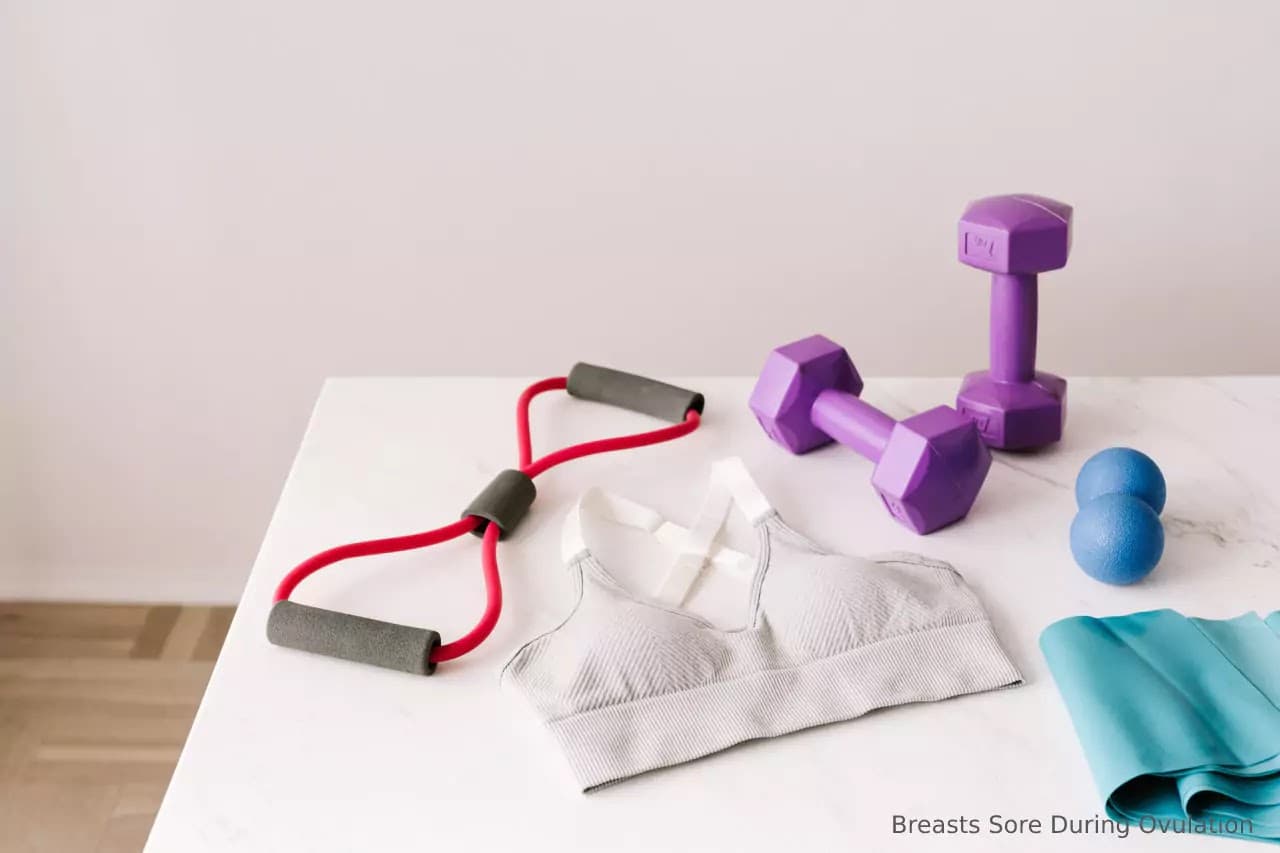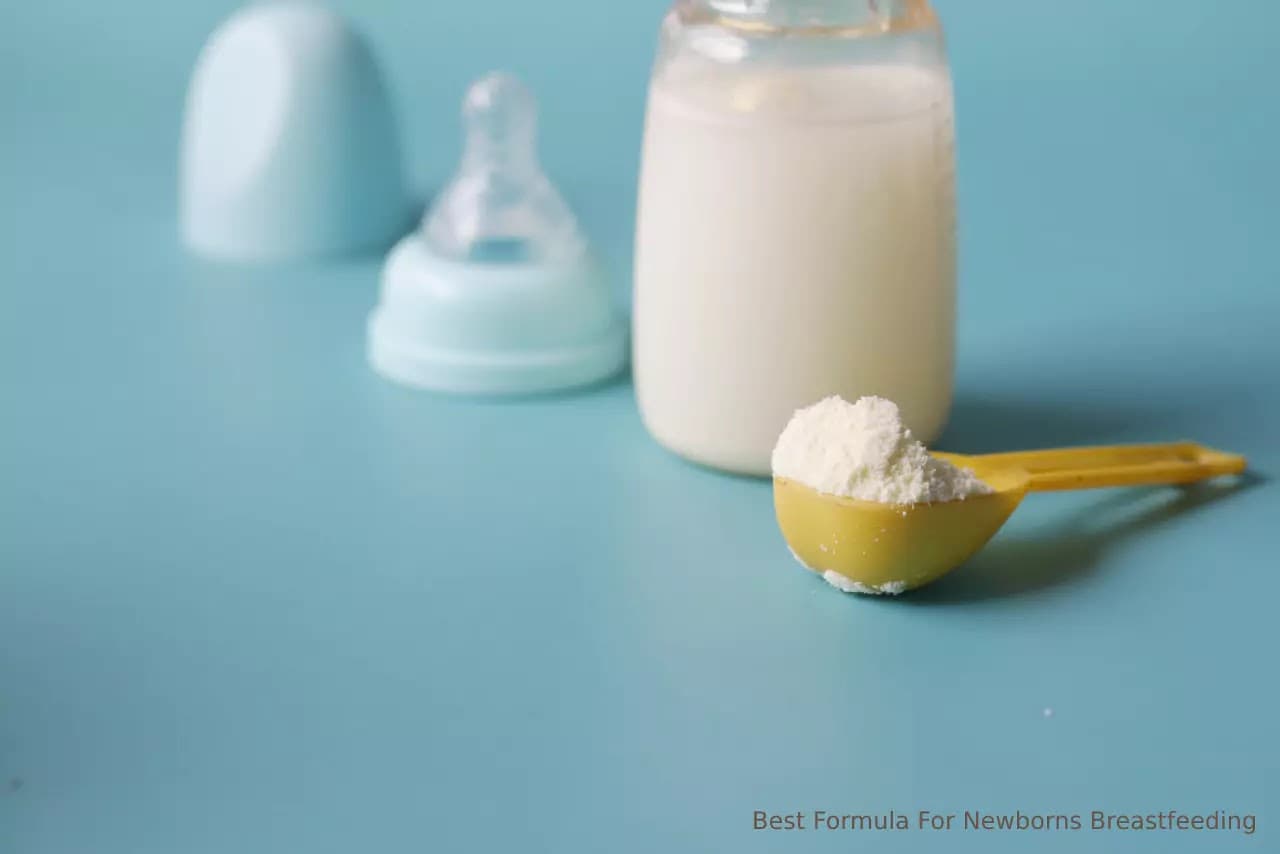Why Are Breasts Sore During Ovulation
Jul 27, 2024 12:00 AM
Parenting

Wellnession.com - Many women experience tender or swollen breasts around the time of ovulation each month. This breast soreness is caused by the natural hormonal fluctuations that occur as part of a healthy menstrual cycle. While it can be somewhat uncomfortable, it's usually nothing to worry about. Understanding what's happening in your body can help alleviate any concerns.
Table of Contents
The Hormonal Cause
In the days leading up to ovulation, estrogen and progesterone levels within the body begin to rise significantly under the control of the hypothalamus and pituitary glands. This surge in female sex hormones causes a flurry of changes in the breasts in preparation for a potential pregnancy. Specifically, estrogen stimulates breast tissue development and progesterone encourages the growth of milk glands within breast tissue.
Rising Estrogen and Progesterone Levels
The spike in these hormones instructs the breasts to proliferate new cells and retain more fluid, making them feel full, swollen or tender to the touch. It's essentially the body's natural way of "test-running" breast changes that would continue in pregnancy for successful breastfeeding. While slightly discomforting, this painless process ensures the breasts are primed and able to produce milk quickly if fertilization and embryo implantation were to occur.
Hormones Cause Breast Changes
From a evolutionary standpoint, it makes sense for breasts to undergo these temporary changes just before ovulation to increase the chances of conception actually leading to a healthy baby. With fuller, more sensitive breasts, a woman may be instinctively more aware of her breasts and tend to them at a time when sex would most effectively result in fertilization.
| Also Read: Top 5 Best Pacifiers For Newborns |
Other Symptoms That May Accompany
Along with the breast tenderness signifying impending ovulation, some women also notice:
| Symptom | Details |
|---|---|
| Abdominal Cramping | Mild, dull cramping from the follicle ripening on the ovary |
| Cervical Mucus Changes | Increased discharge that becomes clear, slippery egg-white texture |
| Mood Changes | Irritability, anxiety, tension and moodiness may occur |
The combination of these subtle signs provides clues that help a woman pinpoint when she is most fertile during her monthly cycle if she is trying to conceive or avoid pregnancy. Monitoring bodily changes can aid efforts for family planning or diagnosis of issues like infertility or irregular cycles.
Timing of Breast Tenderness
Most women experience their breasts becoming tender in the week leading up to ovulation. Some may start noticing discomfort a few days earlier, while the sensitivity tends to peak around the exact ovulation date. After releasing the ripe egg from the ovary, hormone levels begin to fall off again, so breast symptoms usually improve over a day or two after ovulation occurs.
Some key points about the timing:
- May first be felt 4-10 days before ovulation
- Peaks around ovulation day itself for most
- Usually diminishes within a few days after the egg is released
- May affect just one breast or both equally
The length of time a woman feels breast soreness can vary each month but typically falls within this pre-ovulation window. Keeping a basic cycle chart can help identify when personal ovulation signs like tender breasts tend to appear most predictably.
What it Means and What To Do
For the vast majority of women, temporary breast tenderness around ovulation on its own is nothing to worry about. It simply means your body is functioning normally and your breasts are reacting as expected to the natural ebbs and flows of hormones. Some mild soothing steps can provide relief:
- Use a warm compress or gentle massage before bed
- Wear a supportive, well-fitted bra during the day
- Take over-the-counter pain relievers if needed
- Get extra rest and minimize physical impacts or jostling
Unless other unusual lumps or nipple discharge are present alongside pain, mild ovulation breast tenderness usually doesn't need medical attention. It will resolve on its own after your period arrives.
When to See a Doctor
However, it's a good idea to make an appointment with your healthcare provider if:
- Breast pain is severe, constant or getting worse over time
- Lumps are felt within the breast tissue
- Nipple discharge occurs, even if non-bloody
- Ovulation symptoms don't follow a regular pattern
- Your periods become irregular or cycle lengths vary
While not common, underlying breast conditions are still worth ruling out. A doctor can perform an examination and order imaging tests as needed to check for things like fibrocystic changes, tumors or infections. Identifying any irregularities early allows for appropriate follow up or treatment.
Conclusion
To summarize, feeling some slight breast fullness and sensitivity around ovulation is completely normal for most women. It relates directly to the ebb and flow of estrogen and progesterone in a healthy menstrual cycle. Use relaxation techniques and over-the-counter options for relief of minor discomfort. But see your doctor with any severe, ongoing or unusual breast changes from your typical pattern to either put your mind at ease or address underlying issues. In many cases, tender breasts simply indicate your body is primed and ready for its fertile window each month.
Frequently Asked Questions
|
Q: Is breast soreness during ovulation normal? A: Yes, experiencing breast soreness during ovulation is considered normal for many women. It is a common hormonal symptom that often subsides after a short period.
Q: Should I be concerned if breast soreness persists beyond ovulation? A: If breast soreness persists beyond the typical ovulation period or becomes severe, it is advisable to consult with a healthcare professional. This can help rule out any potential underlying causes and ensure proper guidance on managing the discomfort.
Q: Can birth control impact breast soreness during ovulation? A: Hormonal birth control methods may influence breast tenderness, but individual responses vary. If you notice changes in breast soreness after starting or changing birth control, discussing it with your healthcare provider is recommended.
Q: When is it necessary to seek medical advice for breast soreness during ovulation? A: Seeking medical advice is crucial if breast soreness is severe, persistent, or accompanied by other concerning symptoms. This can help identify potential causes and determine the most appropriate course of action for relief.
Q: Are there lifestyle changes that can help manage breast soreness during ovulation? A: Maintaining a healthy lifestyle, including regular exercise, a balanced diet, and managing stress, may contribute to overall well-being and potentially help manage hormonal symptoms like breast soreness during ovulation.
Q: Can breast soreness during ovulation be a sign of pregnancy? A: Breast soreness can occur during early pregnancy due to hormonal changes. However, it's essential to consider other pregnancy symptoms and take a pregnancy test for confirmation if pregnancy is suspected. |
| Also Read: 5 Best Formula For Newborns Breastfeeding |








